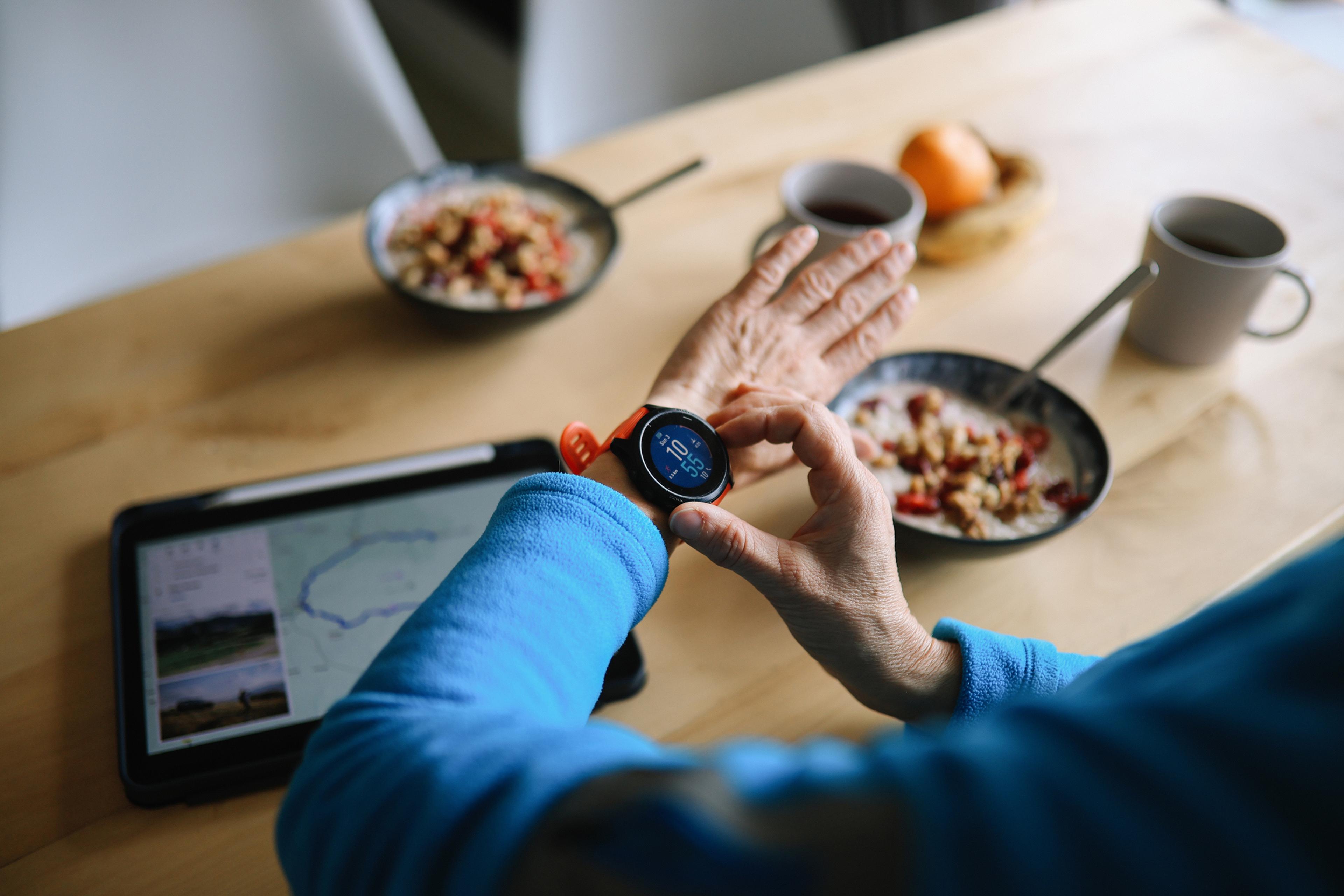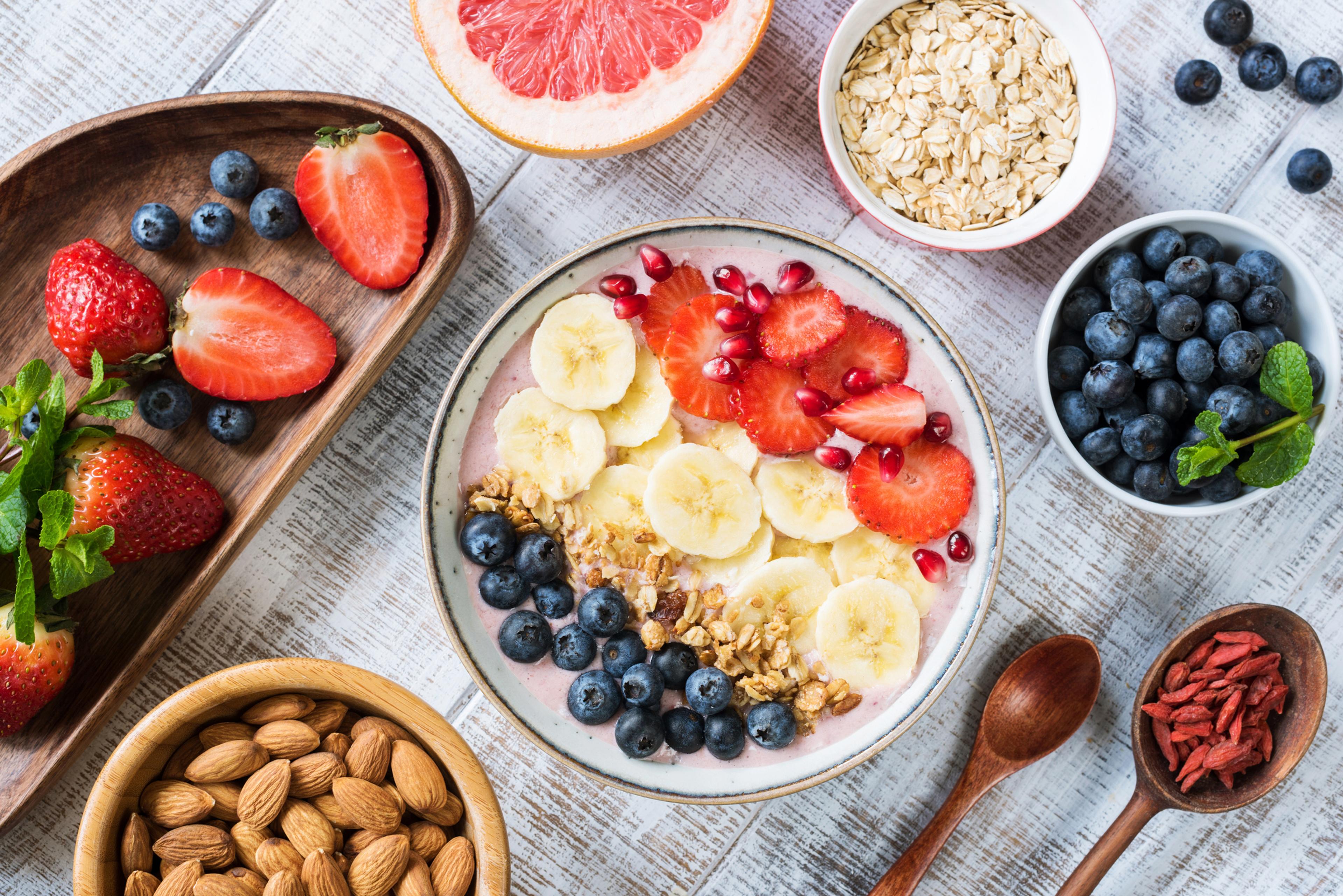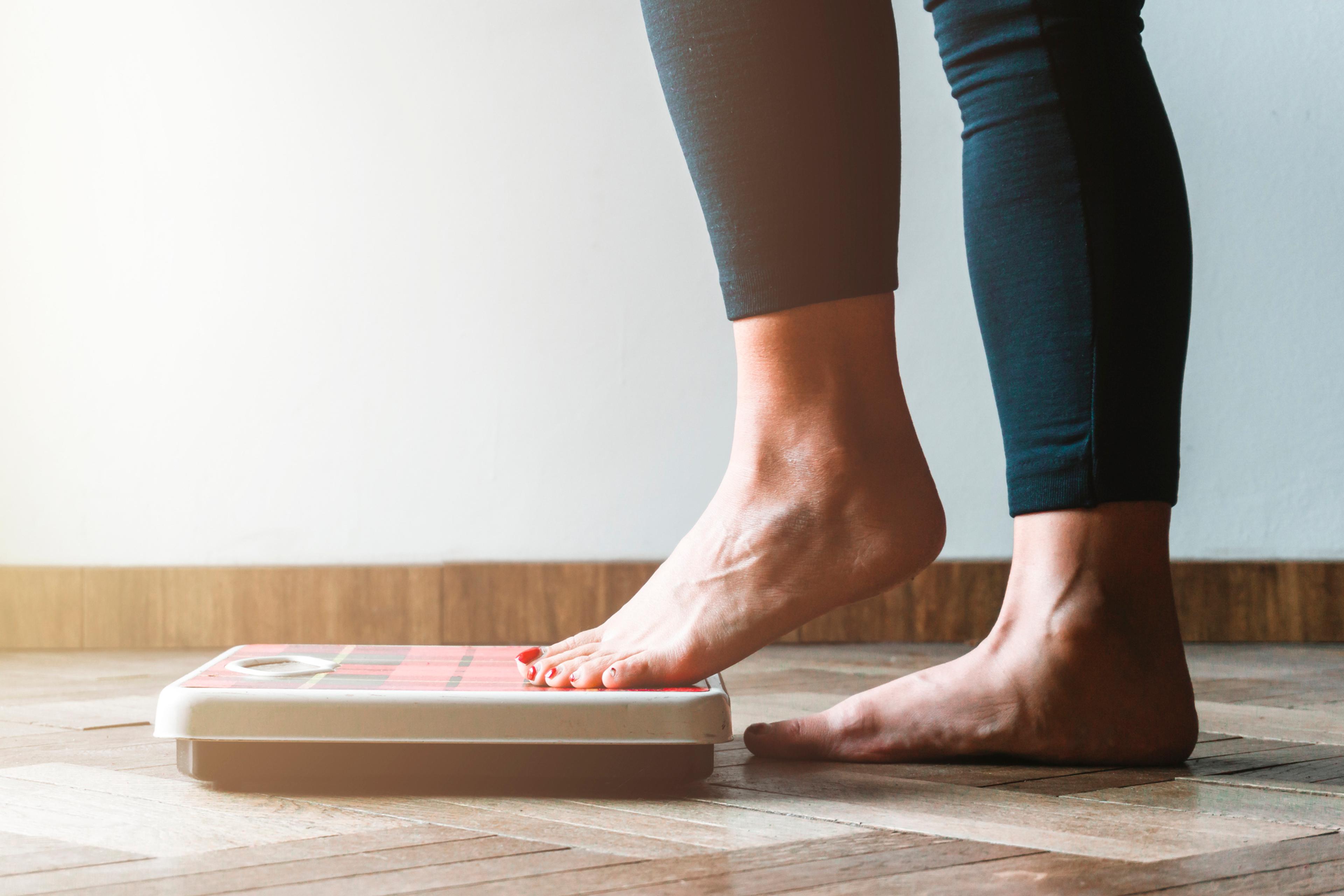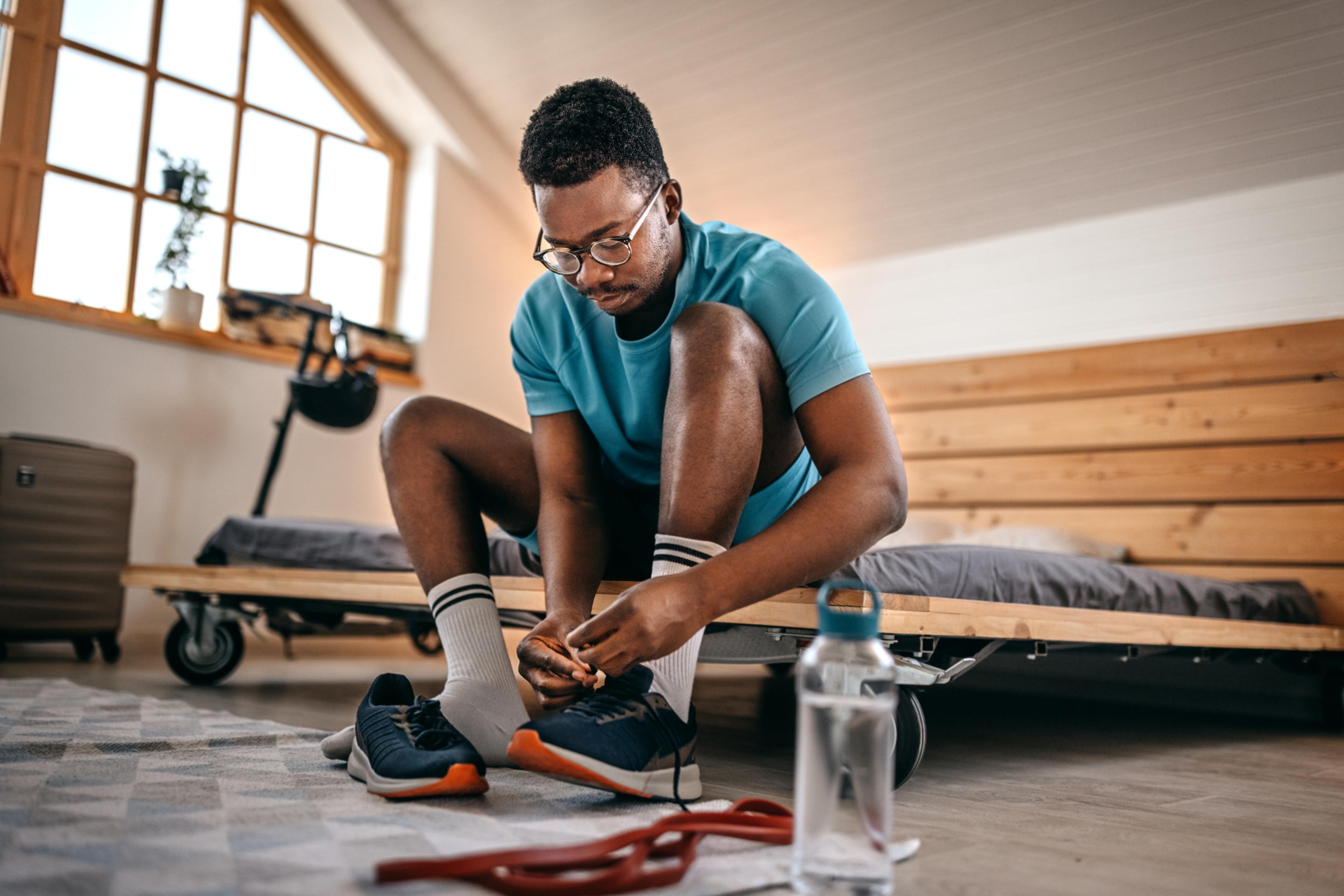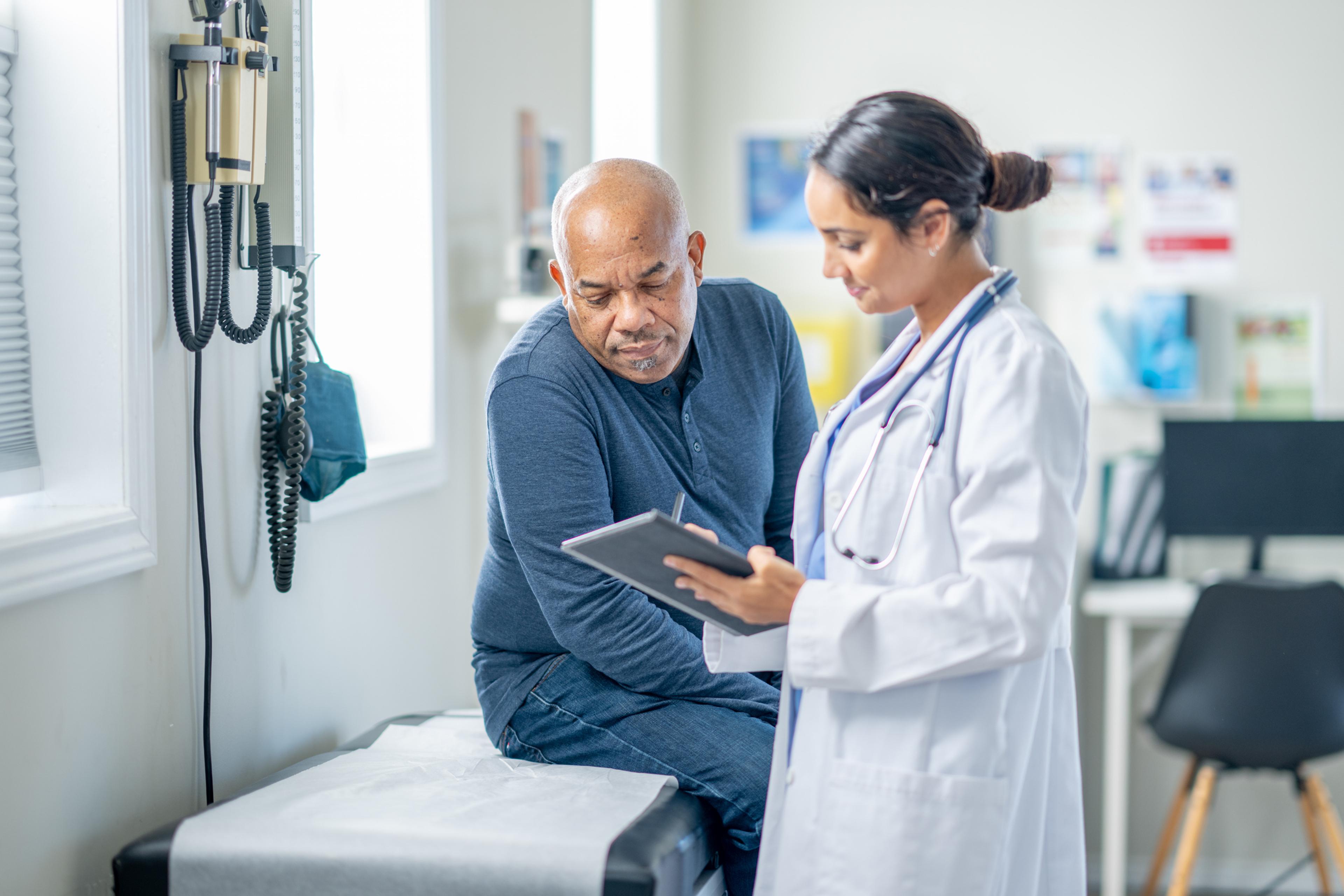How Does Caffeine Affect the Body?

00:00
00:00
About the Show
- What’s happening in the body when we consume caffeine
- The recommended amount of caffeine consumption per day
- Potential side effects of excessive caffeine consumption
- Natural alternatives to caffeine
Transcript
Here is the full transcript of this episode. You can listen to the audio version on streaming platforms or watch on YouTube.
Sleep jitters, a morning pick me up. We all know that caffeine is known to affect all of these things, but what is its true impact? This is A Healthier Michigan Podcast episode 128, and coming up, we discuss the effects of caffeine on the body.
With us today is the medical director for Blue Cross Blue Shield of Michigan, Dr. Gina Lynem-Walker. Doctor, it’s good to see you again.
It’s good to see you, Chuck. It’s always good to see you.
Well, thanks so much. This is a great topic, because coffee is huge, and I know it’s not just in coffee, but according to the FDA, caffeine is so widely available that about 80% of US adults consume some form of it every single day. Does that math make sense to you?
Yes, you are right. Millions of people consume coffee, tea, other cola beverages every day. Coffee’s one of the most common beverages that we drink, so caffeine which is the ingredient that cause us to have that wakeful feeling is part of those beverages that we consume on a regular basis.
Now, I know I’ve got family members, in-laws and outlaws that tend to drink a Diet Coke in the morning or something. I mean, they’re literally drinking soda pop, so I suspect that’s their colder version of getting maybe their caffeine in a different way?
Yeah, that’s right. Some of the stores sell cold beverages, the ice drinks, and those often have caffeine in them. The cola beverages have up to 15 milligrams of caffeine, so they can give that same effect as drinking a cup of coffee or a cup of tea in the morning.
So we know these effects that a lot of people, they actually will verbalize, “I need to wake up with my coffee,” right? So it’s giving you a jolt, it may do something else at night, right? We may have different effects at night, but talk about this idea that while it gives us a quick boost, what else caffeine may do to our bodies.
Sure, caffeine does give us that jolt, it decreases fatigue in some cases, but we have to be careful, especially certain people who are on heart medications, certain antibiotics or antidepressants, and even mixing caffeine with alcohol can have detrimental effects, so you want to be careful.
You want to talk to your healthcare provider, especially pregnant women are advised not to drink more than 200 milligrams of caffeine per day. So if you have certain conditions or are on certain medications, you just want to be careful.
So you’re talking about milligrams, so does 50 milligrams that you referenced for a soda or something, is that about the same in one cup of coffee?
No, actually a cup of coffee has up to 200 milligrams.
Oh, no kidding, in just one cup.
In some cases, more often between 80 to 100 milligrams in an eight ounce cup. But some drinks such as energy drinks, which are often advertised and they add caffeine to those drinks, may have up to 250 milligrams of caffeine, so you want to be careful.
I noticed there’s a workout supplement that a lot of people use, and my son left it at our house, so I thought, “Oh, I’ll mix it in water.” I’m looking at the ingredients and while it’s supposed to help build muscle, you probably notice you’re thinking, “Oh man, does he look great now.”
Oh yeah-
No, I’m kidding.
I can see it.
So while I’m picking things up and putting them down, I’m thinking, “Oh, I’ll use this stuff.” So, I read the side of it and it says, caffeine is in … and I’m thinking, why? So I think people are using this pre-workout and even post-workout, and to be honest, I never knew a product like that would have caffeine in it.
Yes, you would be surprised at the number of products that have caffeine in them, and some of the dietary supplements may come in powder form, liquid form. People use it to give them that boost that they need, but when you’re adding a teaspoon or however much you add in your beverage, it may have detrimental effects.
As a matter of fact, according to the Food and Drug Administration, there were a couple of deaths from lethal amounts of caffeine that people unfortunately put in their beverages, and I think a tablespoon of those powders can be equivalent to 28 cups of coffee.
My gosh.
So, read the label. If you’re on heart medications and you’re taking a dietary supplement, look at what the ingredients are. If they contain caffeine, talk to your doctor to see if it’s okay for you to mix your medications with these supplements.
So if we were to fly into your body structure, what is it that caffeine is actually doing? Because we hear people say, “It gives me a pick me up.” Some people will say, “I’m a little jittery,” right? Maybe heart palpitations and whatnot, but what is it that it’s actually doing to us?
Well, there’s a chemical in our body called adenosine, which acts on our brain, and what the caffeine does is to block the adenosine. By blocking it, it causes that wakeful feeling that we feel more energetic, more awake. Because the adenosine, what it does, it builds up throughout the day, and at night, it signals our body that it’s time to go to sleep. So if we’re blocking that chemical, then we’re more awake.
So people sometimes like to drink an afternoon cup of coffee or even coffee at night with their dinner, and they may notice that they’re not able to go to sleep, or they may have heart palpitations or other things, because it acts on other areas of the body as well.
So I’ve going to raise my hand to that one, I would rarely drink coffee at night. I probably started drinking coffee couple dozen years ago with just an after dinner coffee, and then it kind of spread to the mornings. But I have to admit to your working nights most of my life, and I mean late nights, not getting home until midnight, 12:30 at night after late news, every once in a while, 9:00 inbound to Detroit, I would pick up one of the coffees in the drive-through. Undoubtedly, and I knew this intellectually, I’m up till 2:00 in the morning. I mean, it just did it.
Yeah.
So for me, it wasn’t an awful thing, because I would get to bed by 1:00 anyway, so it wasn’t a lengthy problem, but I recognized it in my body right away, and I have to stay away from it. I am one of those guys that I’m fine in the morning or I don’t even notice a jolt, but at night, oh, it’ll keep me up.
Yeah, and everybody’s body is different. They say there’s a genetic component in how your body reacts to the caffeine. Some people are able to drink several cups of coffee, have no problem sleeping, but for the average person, it’s a stimulant, so it will decrease your ability to sleep at night.
So if you’re getting this daily kind of jolt, whether you actually physically feel it or not, you can still have things happening internally that you’re not quite aware of, but you’re getting a daily something is happening, what can be the long-term effects of that? I mean, if my heart were having palpitations every day, I suspect over a number of years that’s probably not a good idea.
Well, yeah, over a number of years, but for the healthy individual, just the average healthy person, up to four cups of coffee is okay, so that would be about 400 milligrams per day. Coffee lingers in our body. Certain chemicals have what we call a half-life, so that means that it lingers in the body for a set amount of time. So caffeine may linger up to six hours per day, but then the levels start to decline.
So over time, there does not appear to be any long-term effects on the heart, but short-term, increasing your blood pressure in some individuals, increasing your heart rate can be an issue, especially if you have a history of hypertension or high blood pressure or arrhythmia, something like atrial fibrillation. So, you do want to be careful because of that short-term action that the caffeine may have on your organs.
I’m always cautious when I see or now I hear some of the advice you’re giving, because we tend to think that, well, we all must know if we have a preexisting condition, right? There are a lot of people walking around, my dad happened to live with hypertension most of his life, and his blood pressure could at times raced at 220 or something. I mean, stroke level.
Wow.
We’d have to rush him to the ER and stuff like that, but-
Yeah.
Some people know it, and then this could be a tipping point for you that maybe you didn’t know you have AFib or you didn’t know you have hypertension. So you’ve got to be careful nonetheless, that I guess maybe if your body is sending you signals, you pay attention to those, right?
Yes, of course. If you’re drinking coffee and your heart’s racing and you’re feeling jittery and you’re getting a little dizzy, then you want to stop. You just want to stop. With caffeine, what happens often is we become dependent on it, so gradually kind of weaning yourself off of it is important if that’s the way you want to go, because withdrawal can cause certain symptoms like headache and nausea, jitteriness, just not feeling yourself.
But again, like you said, if you have a predisposition to something like high blood pressure or irregular heart rhythms, you notice you’re drinking coffee and those things tend to increase, then you definitely want to go to your doctor and get checked out.
Are there things that are baked into the cake with any cup of coffee that there’s an upside? Are we finding any protections that you’re aware of that are helping us with the downside of caffeine?
Well, there are of course always studies being done, and some people think that caffeine may decrease appetite in some people, so it may contribute toward weight loss in some. They’re also doing studies on people with dementia to see if the caffeine can help with that as well, but these are studies that are ongoing, so the evidence is not really clear if these things are helpful, but it can help in the short-term. It can help with decreasing fatigue, it can boost mood in some cases, it can boost performance for some athletes in the short-term. So, it can have beneficial effects in those regards.
If you’ve had your four cups for the day and you go out for a bite to eat or something asking for decaf, is decaff really 0% caffeine or is there still a little something something in there?
There’s a little something something in there.
Okay, okay.
So yeah, a decaf cup of coffee, for instance, may have up to 15 milligrams of caffeine in it. So a lot less than the 100 milligrams of a cup of coffee, but if you’re sensitive to caffeine, you still want to know that decaf has some caffeine in it.
Yeah. Alternatives to coffee and caffeine. I don’t want to just focus on coffee, because as you said, it’s energy drinks and even tea, right? I mean, even if you’re into black tea or-
Yeah, you’re right, coffee, tea, green and black tea, cocoa, chocolate has caffeine in it. There’s something called guarana berries and yerba mate, and these things are being added to supplements and things like that. So all these things have caffeine, so when you’re going out to dinner or restaurant, you’ve already had four cups of coffee, maybe you want to have something without caffeine in it.
Yeah, so kind of like anything in life when it comes to health and wellness, finding balance, right? I mean, if you swear off cookies your whole life, you may be apt to eat the whole bag when they come, or-
Yep, that’s me.
The whole birthday cake. Yeah. Yeah, I’m with you too. So I guess balance is the way to go, and if you’re aware and kind of plugged into your own self and the way things work, you would think for most of us, it’s a pretty easy way to regulate life, right? You just go for decaf in the evening or something and it all seems to work out.
Yeah, you’re right. As with anything, we talk about alcohol in moderation, the same thing goes with caffeinated beverages. Most studies say that up to four cups of coffee a day or cola beverages is okay for the healthy individual, so we shouldn’t sweat that. It’s okay to have your cup of coffee in the day, but just be careful if you have certain preconditions, if you’re on certain medications. If you’re pregnant, of course you want to talk to your gynecologist, OB-GYN, about drinking coffee. So certain situations, you just want to be careful.
It seems, I don’t know if this is true across the board, and I’m not sure if you know, but the lighter alternatives to colas, the citrusy drinks don’t tend to have either caffeine at all added or as much caffeine. I don’t know if I’m off base on that, but it seems like the lighter looking the drink, maybe the clearer drink, I guess, doesn’t seem to have it?
Yeah, the cola drinks have the cola nut, and that has caffeine, so those drinks, but I would say just read the label, because you never know. Some of the lighter color drinks may have caffeine in them, so read the label. But things like herbal tea don’t have caffeine, so if you want to use that as an option. Like you said, decaf beverages that have lower amount of caffeine, so there are other things that you can drink. Just plain old water, we forget about that.
Yeah, right. Diet water.
Yeah. Yeah, that’s true. That’s true. Caffeine as an aside can be a diuretic, so you may notice that when you drink caffeinated beverages, you tend to go to the bathroom more often to urinate. So it may in fact dehydrate you, so you want to get your water in there as well when you’re drinking coffee and tea.
That’s an interesting phenomena. As we’re coming back, we’re in the shadow of we hope for a while our Michigan winter weather, and it got a bit brutal here toward the end of the season.
It did.
But there are a lot of people who will drink that hot cup of Joe before they head outside to shovel the heavy snow. What you just said kind of piques my interest that you are changing your body’s dynamics as a diuretic, so maybe you’ve got less water content and then you’re going out exerting yourself. Maybe it’s not just the beverage and the caffeine, it’s the coupling it with other things that could be harmful as well, right?
You make a good point. Especially people who have preexisting conditions like high blood pressure, diabetes, high blood cholesterol levels, you’re drinking that cup of coffee, because the coffee will for the short-term increase your blood pressure. So if you already have a problem to begin with and you’re adding on that coffee, increasing your blood pressure, causing your heart rate to increase, that does put you at risk.
So before you do an activity like that, you of course want to check with your doctor to see if you even should be doing that in the first place. But if you decide to go ahead and do that, you might want to stay away from coffee or any caffeinated beverage prior to doing that, and just drink a nice glass of cool water. Hydrate, hydrate, hydrate.
No, good idea. So as we wrap things up, give us in your mind the takeaways on this idea of caffeine consumption and how it can affect us.
Well, caffeine is consumption in moderate levels. Up to 400 milligrams per day is okay for most healthy people, so it’s okay to drink it. Be careful if you have preexisting conditions or are on certain medications. Children and teens need to be careful, especially when consuming those energy drinks, because they have a lot of caffeine in them. Be careful when you are consuming dietary supplements such as powders or liquids that have a lot of caffeine, because they can be equivalent to multiple cups of coffee and they can have toxic effects.
Well, it’s so good to see you again, Dr. Gina Lynem-Walker. Always some good stuff, and this is helpful. I’m rethinking a couple things about what I’m going to do for my daily events of caffeine ingestion, just kind of recalibrate a little bit.
It makes you think.
Well, take good care.
You too now.
So nice to see you, thanks. Oh, we’re glad you’re with us. Thanks for listening to A Healthier Michigan Podcast. This is brought to you by Blue Cross Blue Shield of Michigan. If you like the show and you want to know more, you can check us out online by going to ahealthiermichigan.org/podcast, or you can leave us a review or rating on Apple Podcast or Spotify.
Also, you can hit that follow button on Facebook or Instagram or Twitter. You can get new episodes. We’re up to 128, you can get all the old episodes that are there. So as we are able to start going out working in the yard, going for the power walks, you can take us with you on your smartphone, or you can use a tablet. Be sure to subscribe to us as well on Apple Podcast, Spotify, or your favorite podcast app. I’m Chuck Gaidica. Stay well.

